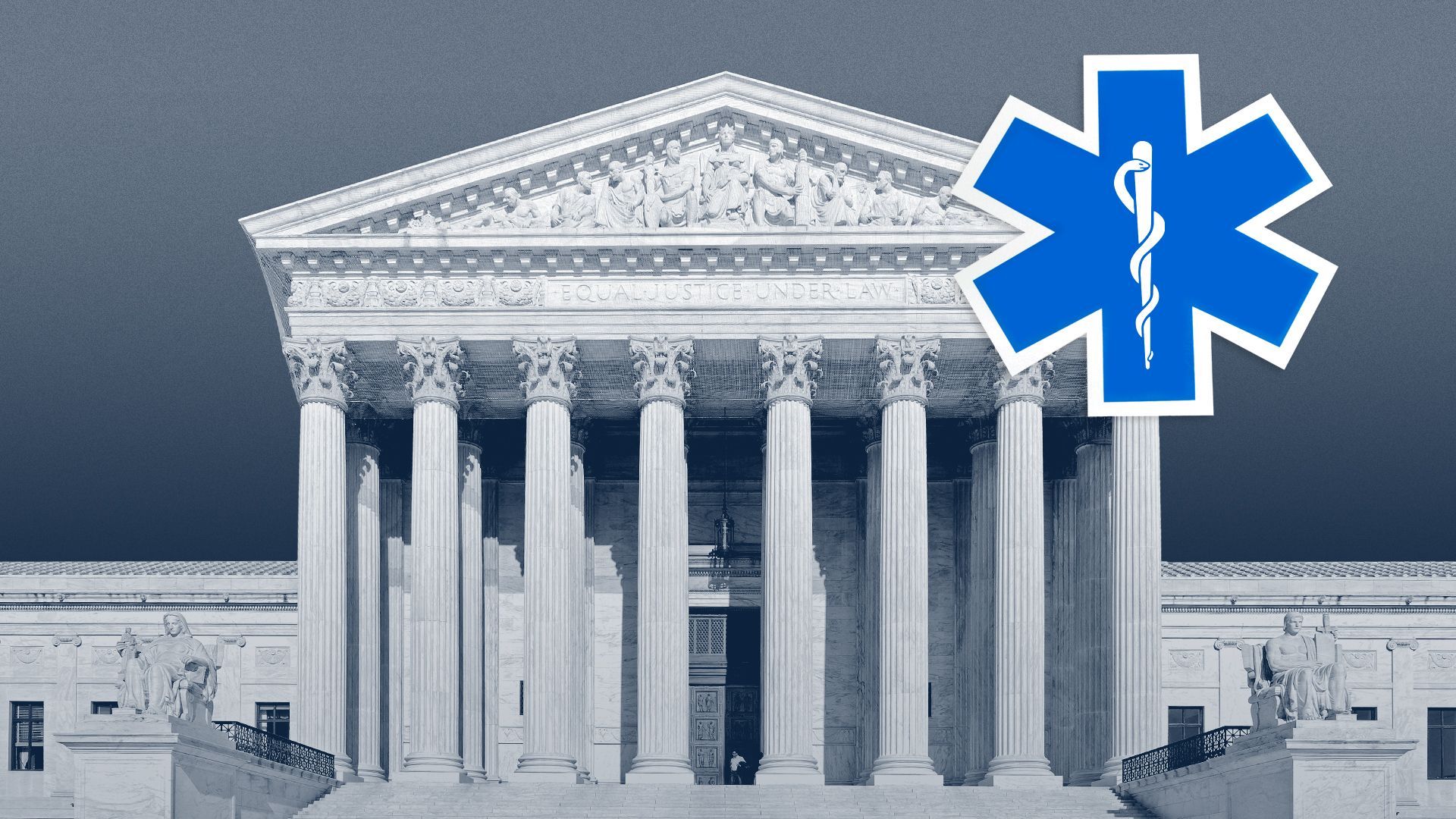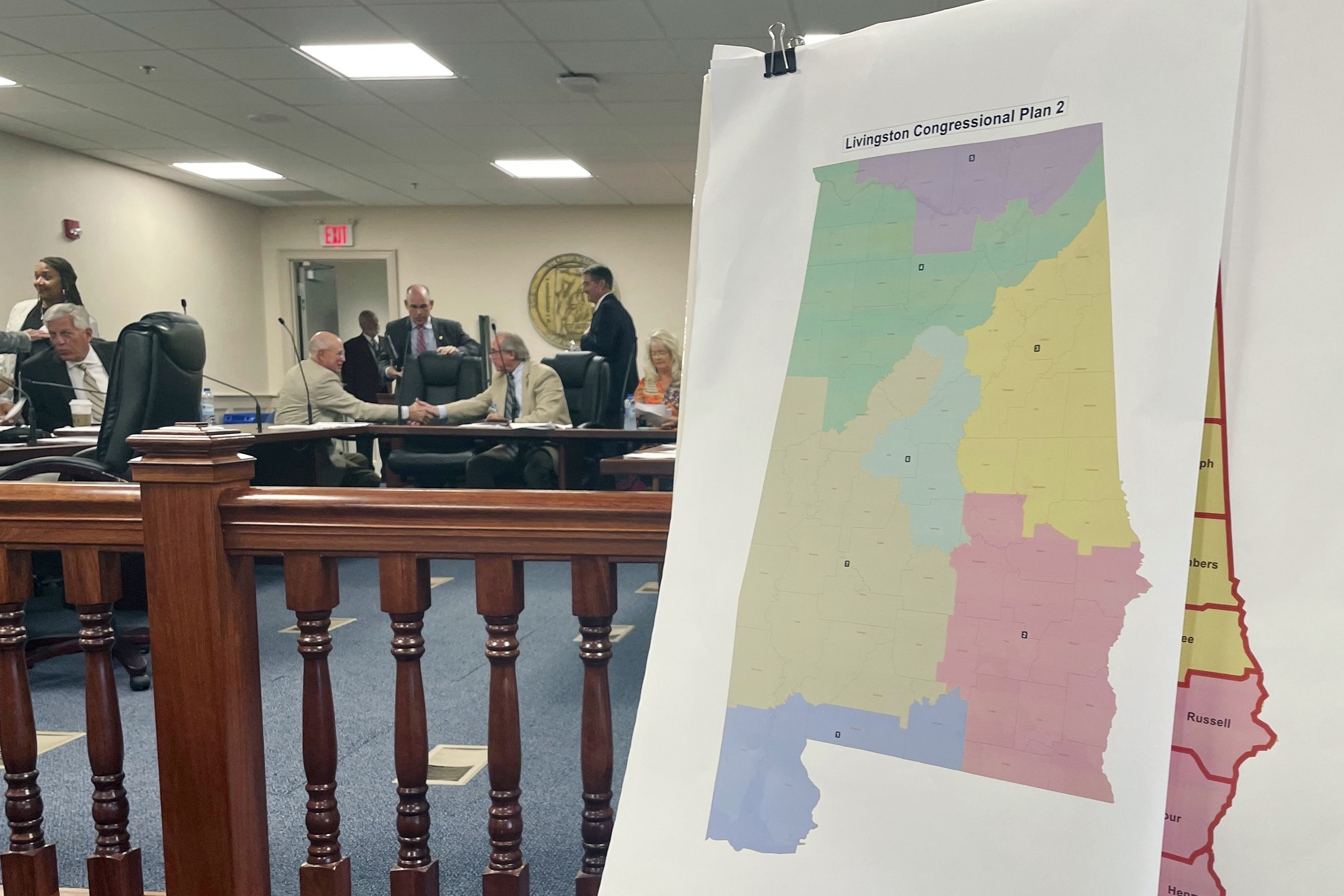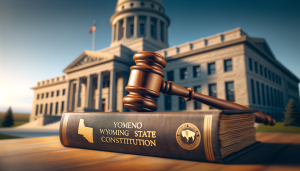Major abortion pill and trans care cases looming in new SCOTUS term

Next week, the Supreme Court will begin a new term. Experts believe that this could lead to landmark decisions regarding medication abortion and gender affirming care.
What’s going on: If the Supreme Court decides to hear the cases during this term, the rulings will likely be made before the summer of 2024 as the presidential campaign enters its final stretch.
The Justices have agreed to hear arguments for a case which could limit the amount of deference that courts accord to health regulators and federal agencies when interpreting ambiguous laws.
In the news: A case that involves the widely used abortion pill, mifepristone could determine whether a court can limit access to abortion in states that do not protect it. They may also decide if the Food and Drug Administration should have revoked drug approvals.
|
Earlier this week, Danco Laboratories and the Biden Justice department petitioned to review a ruling of an appeals court in August that restricted access to the pill.
The request allows the justices to make a decision on a drug that is used in over half of all abortions performed in the U.S., which was approved in 2000. It has been deemed safe and effective by the leading medical associations.
The 5th U.S. The 5th U.S.
At the same time, the panel blocked a lower court decision that would have thrown out the FDA approval for the drug.
Danco and other interests in the drug industry argue that the rollback will destabilize pharmaceutical and biotech by undermining the FDA’s regulatory discretion.
The DOJ also cited “serious errors” in 5th Circuit’s ruling as justification for taking the case to the high court, adding that it could harm women’s health.
The Supreme Court has already weighed in on the case once, issuing an order in April which kept the status-quo and allowed mifepristone to be widely available until the legal challenges against the FDA’s power are resolved.
If they accept a hearing during the new term, the justices will consider whether the anti-abortion group that brought the original case has legal standing and if the FDA’s easing of access to the market violated the Administrative Procedure Act which governs regulatory changes.
The court may agree to examine conflicting court rulings in the last year on state bans, which critics claim violate the 14th Amendment because they discriminate against trans youths and restrict parents’ rights.
Twenty-one state bans hormone therapy, surgery, or other types of care for minors. Some have been overturned by lower courts.
A divided panel of the U.S. 6th Circuit Court of Appeals lifted a lower court’s ban on such care for youths in Tennessee. In July, the Circuit Court of Appeals lifted a lower-court freeze on Tennessee’s prohibition on such care.
A panel of judges in the 6th Circuit ruled that Kentucky could continue to enforce its ban on hormone treatments and puberty blocking drugs, stating there were not enough differences between Tennessee’s restrictions to warrant a different ruling.
The 11th Circuit U.S. Court of Appeals has since reinstated Alabama’s prohibition on hormones and puberty blockers, while a district judge in Georgia blocked a part of the ban on gender affirming care for minors.
Last week, the 4th U.S. The 4th U.S. Circuit Court of Appeals has heard oral arguments on cases involving coverage of gender affirming care by North Carolina state employee health plans and coverage of gender affirming surgery by West Virginia Medicaid.
During the hearing, two judges told the Associated Press that it was likely the case would eventually reach the U.S. Supreme Court.
In a case that will be closely followed by the health care community, the justices are going to consider how much latitude courts should allow U.S. agencies in interpreting federal law.
In the case of Loper Bright Enterprises, v. Raimondo (which is now nearly 40 years old), courts are challenged to defer to federal agencies’ views when deciding disputes over ambiguous laws.
Conservative groups have long criticized the Supreme Court’s Chevron decision, claiming it empowers the administrative state.
The case will be heard by the justices, and it is a challenge against commercial fishing regulations. However, the implications are far broader – especially in the highly regulated healthcare sector.
In a Friday brief to the Supreme Court, over a dozen groups, including the American Cancer Society, the American Academy of Pediatrics, and other health care organizations, said that the Supreme Court’s decision on Chevron would have a wide range of implications for federal programs of health insurance, such as Medicare and Medicaid, and how they pay for drugs, monitor nursing homes, and respond to new treatments.
While the groups sometimes disagree on how health agencies exercise their authority, they all agree that it is constitutionally permissible for such an agency to be staffed by subject matter experts, accountable to the president, Congress, or courts.









No Comments